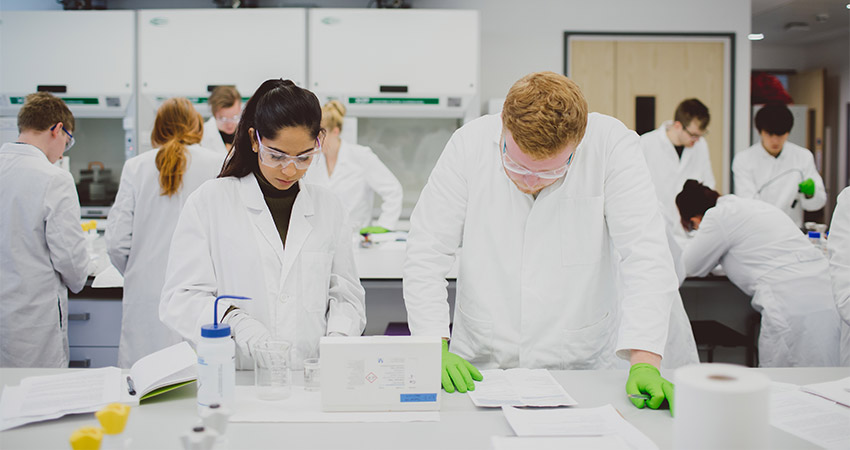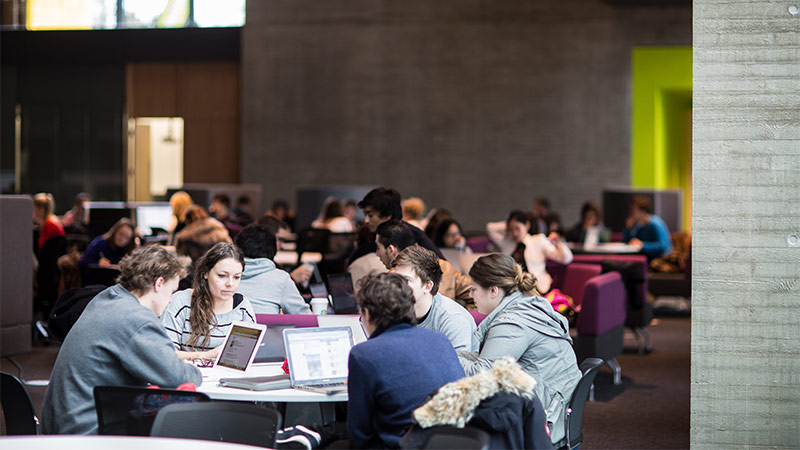Medical Sciences (Final Year Entry)
BSc (Hons)
UCAS code: B290
Start dates: September 2026
Full time: 1 Year
Location: Headington
School(s): School of Biological and Medical Sciences
Overview
It’s our belief that if you’re smart enough and curious enough, you should have the opportunity to study on our BSc (Hons) Medical Sciences degree. If you love solving problems and want to understand all kinds of illnesses, then Medical Sciences is for you.
This final-year entry route is designed for students with a BTEC National diploma Level 5 in Science. The diploma is equivalent to 2 years of degree study. You’ll join our department in the third year, ready to graduate with the same degree as students who came via the A-level route.
On the course, you’ll develop detailed practical and scientific knowledge. You’ll gain a good understanding of the human body in health and disease.
Through a mix of academic and practical learning, you’ll gain the skills employers look for. These include lab techniques, data handling, computing, report writing, oral presentations, and teamwork.

Why Oxford Brookes University?
-
Expert teaching
On most of your modules, you will learn from professionals such as bioscience researchers, practising clinical scientists and physiologists, who work with us to co-deliver your module learning, helping you build insights into how your growing knowledge and skills are used every day by professionals in a range of career paths.
-
Excellent grounding
The degree provides a great foundation for applying to graduate-entry Medicine and Physician's Associate courses. It builds on core medical science subjects.
-
Strong industry links
Our links with industry are positive. Students go on to work for local hospitals and research institutions. We also regularly welcome guest lecturers from industry.
-
Research experience
You’ll work with our academics, who are active in research groups, and you may join one of them to explore a novel question for your project.
-
Final year expertise
Progress your practical and scientific knowledge.
Course details
Study modules
Teaching for this course takes place
Face to Face and you can expect around 8 hours of contact time per week.
In addition to this, you should also anticipate a workload of 1,200 hours per year. Teaching usually takes place Monday to Friday, between 9.00am and 6.00pm.
Contact hours involve activities such as lectures, seminars, practicals, assessments, and academic advising sessions. These hours differ by year of study and typically increase significantly during placements or other types of work-based learning.
Please note: As our courses are reviewed regularly as part of our quality assurance framework, the modules you can choose from may vary from those shown here. The structure of the course may also mean some modules are not available to you.
Careers
The BSc Hons Medical Sciences (final-year entry) degree will open up many wonderful doors for our graduates. Students on our similar final-year courses have gone on to work in diagnostic clinics, diagnostic labs, biomedical companies, or to complete Master’s or PhD studentships.
Popular roles include:
- biochemist
- biotechnologist
- medical research scientist
- lab technician
- forensic scientist
- clinical research associate
- microbiologist.
Medical science is a practical subject and employers value our graduates for their understanding and experience of important scientific equipment.
We’re fortunate to be in Oxford. The city and its surrounding areas provide an excellent network of relevant bioscience companies and institutions for professional work opportunities.
Entry requirements
Further offer details
Students will usually have achieved a Diploma of Higher Education with at least 55% or a Higher National Diploma with a Merit profile in a relevant discipline such as Applied Sciences (Biology) or Biomedical Science, or an equivalent relevant Level 5 qualification of 240 CATS subject to individual credit rating by Oxford Brookes University.
Specific entry requirements
Please also see the University's general entry requirements.
English language requirements
For applicants whose first language is not English, an Academic IELTS with 6.0 overall, including 6.0 in Reading and Writing, and 5.5 in Listening and Speaking.
Please also see the University's standard English language requirements.
Credit transfer
Many of our courses consider applications for entry part-way through the course for students who have credit from previous learning or relevant professional experience.
Find out more about transferring to Brookes. If you'd like to talk through your options, please contact our Admissions team.
Terms and conditions of enrolment
When you accept our offer, you agree to the Terms and Conditions of Enrolment. You should therefore read those conditions before accepting the offer.
How to apply
Application process
Full time international applicants can also apply through UCAS
Tuition fees
Questions about fees?
Contact Student Finance on:
Tuition fees
Please note, tuition fees for Home students may increase in subsequent years both for new and continuing students in line with an inflationary amount determined by government. Oxford Brookes University intends to maintain its fees for new and returning Home students at the maximum permitted level.
For further information please see our tuition fees FAQs.
Tuition fees for International students may increase in subsequent years both for new and continuing students.
The following factors will be taken into account by the University when it is setting the annual fees: inflationary measures such as the retail price indices, projected increases in University costs, changes in the level of funding received from Government sources, admissions statistics and access considerations including the availability of student support.
How and when to pay
Tuition fee instalments for the semester are due by the Monday of week 1 of each semester. Students are not liable for full fees for that semester if they leave before week 4. If the leaving date is after week 4, full fees for the semester are payable.
- For information on payment methods please see our Make a Payment page.
- For information about refunds please visit our Refund policy page
Financial support and scholarships
Additional costs
Please be aware that some courses will involve some additional costs that are not covered by your fees. Specific additional costs for this course are detailed below.
Programme changes:
On rare occasions we may need to make changes to our course programmes after they have been
published on the website. For more information, please visit our
changes to programmes page.

